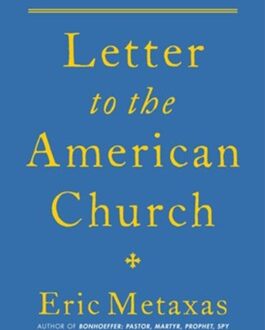Is there a crisis of expertise?
When should we trust the experts? For that matter, who counts as an expert, and on what is this based? Expertise is by nature narrow and specialized; at what point does someone’s expertise fail to apply to the area about which they are being asked to speak?

These are basic questions that underlie many of out current debates. In a fascinating article entitled “The Crisis of Expertise,” Musa al-Gharbi examines the polarization around the issue of “believing in science” — and other forms of expertise. This interests me, as since the coronavirus shutdowns I’ve been thinking about the common complaint that those who do not fall into lock step with “expert advice” in public policy do not “believe in science.” This week, the charge is leveled against those protesting government shutdowns that, though they are motivated by public health concerns, work out functionally as direct attacks on people’s livelihoods. Such actions can have unintended and long-term effects on individuals’ physical and mental health (through the loss of healthcare along with jobs, the strain on relationships, the collapse of plans for future security, the exacerbation of fear and helplessness) as well as societal health.
Al-Gharbi takes his title from a recent book by Gil Eyal, which he explores along with other sources of information. One of the most interesting points raised is that those charged with not believing in science actually do. For instance, though “climate change deniers” point skeptically to the political ideologies and policies climate change is used to promote, they are often better informed about the science than those who uncritically accept it as fact. They also keep the debate on scientific grounds, often pointing to a need for further research, or to holes in current research. In other words, they trust the scientific process — as do Americans in general, more than other nations, according to the stats.
The term “Trans Science” is new to me, and I find it useful. Trans science refers to the intersection of science, which properly studies means, and politics, which effectually focuses on ends. “Questions like “what shall we do?” or “how shall we live?” are ultimately values questions, not scientific questions. However, scientific findings have a number of implications for how such questions are answered,” writes al-Gharbi. Similarly, the demand for scientists to provide estimates for things they cannot know stretches the bounds of science. Such questions fall into the category of trans science:
Typically we don’t have the necessary data to answer questions put to experts — nor can we wait for perfect or complete data. Decisions must be made. Expertise, Eyal says, is our name for this realm of trans-science — where questions are asked that should be asked, which must be wrestled with, which are put in scientific terms but cannot be answered by science (yet, if at all). The function of experts, according to Eyal, is to impose some kind of discipline and order into public debates on these questions – allowing discussions to reach provisional and partial conclusions such that decisions can be made and actions can be taken. They help instill confidence and build consensus; they foster a sense of legitimacy around evaluations (and any subsequent interventions) and the processes through which they were reached.
Ultimately, then, the crisis of expertise is not about “science” or opposition thereto. It is about the (in)ability of experts to effectively fulfill their social role – that is, to perform the trans-scientific work of bringing debates to actionable stopping-points, or generating confidence, consensus or a sense of legitimacy around subsequent decisions.
Musa al-Gharbi, “The Crisis of Expertise”
The article goes on to explore some of the implications for higher ed.
So much of the public debate is simplified, in part by political battles over who controls the narrative (story again), that a reflection like this one really stands out. Speaking with precision is a beginning to finding areas of common ground and clearer definition of practical problems to be solved. Even more importantly, it expresses respect — for the complexity of an issue, and for those affected by it. For now, I’ll focus on something I do have control over: my own teaching. Al-Gharbi gives Eyal the last word, and it’s directed at teachers:
You teach students (or fellow experts, or civil servants, or the lay public) how to recognize inconvenient facts by recognizing them yourself, recognizing and grappling with precisely those facts that are inconvenient for your party opinion. Yet, if one manages to make even a small contribution towards developing in others the faculty of recognizing, acknowledging, even seeking out the inconvenient facts, then it may be reckoned as nothing less than a ‘moral achievement.’
The Crisis of Expertise, p. 142



